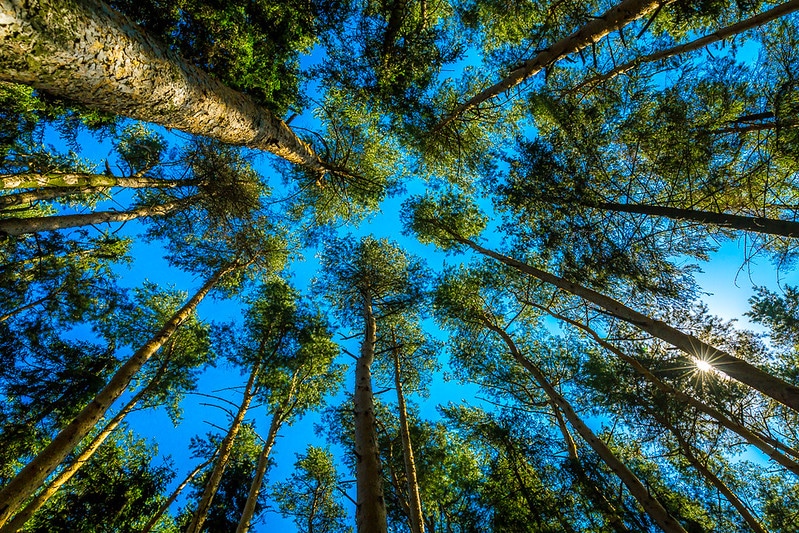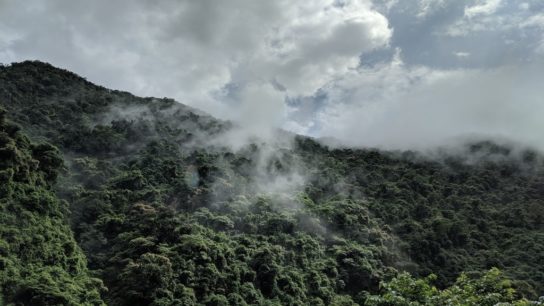Russia is creating a digital platform to collect satellite and drone data about the carbon absorption capacity of the region’s forests. Authorities in Russia hope to use these forests, specifically an area nearly twice the size of India, as a marketplace for companies to use for carbon offsetting.
—
What is Happening?
- Russia is the world’s biggest energy exporter and one of the largest polluters, and the country hopes this plan will show the world that it is serious about combating climate change.
- However, historically, it has long argued that it should be given more slack in climate talks for the sequestration potential of its forests, which hold around 640 billion trees. Forests are poorly managed, which has led to record forest fires in the past two years as climate change has made summers hotter and dryer.
Alexey Chekunkov, minister for the development of the Russian Far East and Arctic, said in an interview that “Russia has 20% of global forests, so the international community must be fair in that respect. We have the potential to turn them into a massive carbon capture hub.”
- Under the “forest marketplace” system, companies would be able to lease sections of forest from the government in order to invest in planting new trees and protecting what’s already there. If data confirms that the investment has improved carbon absorption, the company could then create a carbon credit, which could be traded on the digital platform.
Russia’s Forests
- Managed forests in Russia are estimated to have absorbed nearly 620 million tons of carbon-equivalent in 2018, according to the country’s latest data, enough to offset around 38% of national emissions.
- Carbon offsetting has received criticism from scientists who warn that greenhouse gas emissions need to be cut in half globally by the end of this decade, and to zero by 2050.
- Criticisms include that carbon offsets allow polluters to carry on polluting while claiming to be environmentally conscious, that they can “lock in” high-carbon infrastructure and that they create an incentive to avoid regulating certain sectors and industries.
- These criticisms are not helping Russia, which has the weakest climate target of any major economy and is actually planning a slight increase in emissions by 2030.
- Interestingly, according to Climate Action Tracker, Russia’s climate goals are rated as “critically insufficient,” meaning that it wouldn’t qualify to use carbon offsets as part of its Paris Agreement target, according to Anna Romanovskaya, director of the Moscow-based Yu. A. Izrael Institute of Global Climate and Ecology. However, companies could still in theory sell credits internationally if they can prove that they’ve added to the forest’s absorption capacity.
Alexey Kokorin, director of the Climate and Energy Program at WWF Russia, says, “The lion’s share of Russia’s plan to cut emissions should be renewable energy, new technology and energy efficiency. Additionally, and with very strict criteria, would come forestry development.”
You might also like: Why Isn’t Russia Ramping Up its Use of Renewable Energy?
Could This Carbon Offsetting Project Work?
- According to Bloomberg, state-controlled oil and gas giant Gazprom Neft PJSC, petrochemical producer Sibur Holding PAO and machine manufacturer Sinara Group have expressed interest in investing in future pilot projects for forest carbon trading.
- The project may help mitigate losses from an EU plan to impose a levy on some emissions-intensive goods- Russia expects costs as much as USD$8 billion from the Carbon Border Adjustment Mechanism, due to come into effect in 2023.
- There are some doubts as to the feasibility of this carbon offsetting project in the forests of Russia, however. Romanovskaya says that obtaining data on carbon sequestration from forests is difficult because trees are vulnerable to unpredictable events like forest fires and disease outbreaks. Additionally, it requires detailed inventory data, which on average hasn’t been updated in Russia in 25 years. Finally, offset programmes based on planting trees have come under criticism after many were found to have no contribution to reducing the amount of atmospheric carbon.
Romanovskaya says, “We will need to demonstrate to the international community that calculation of CO₂ absorption in our offset projects is precise, reliable and not a single unit is miscalculated. One mistake, let alone an intentional falsification, and the credibility of our projects may be lost.”
Featured image by: Flickr

















